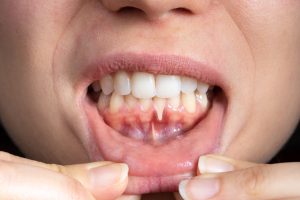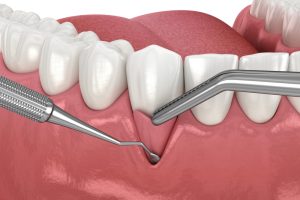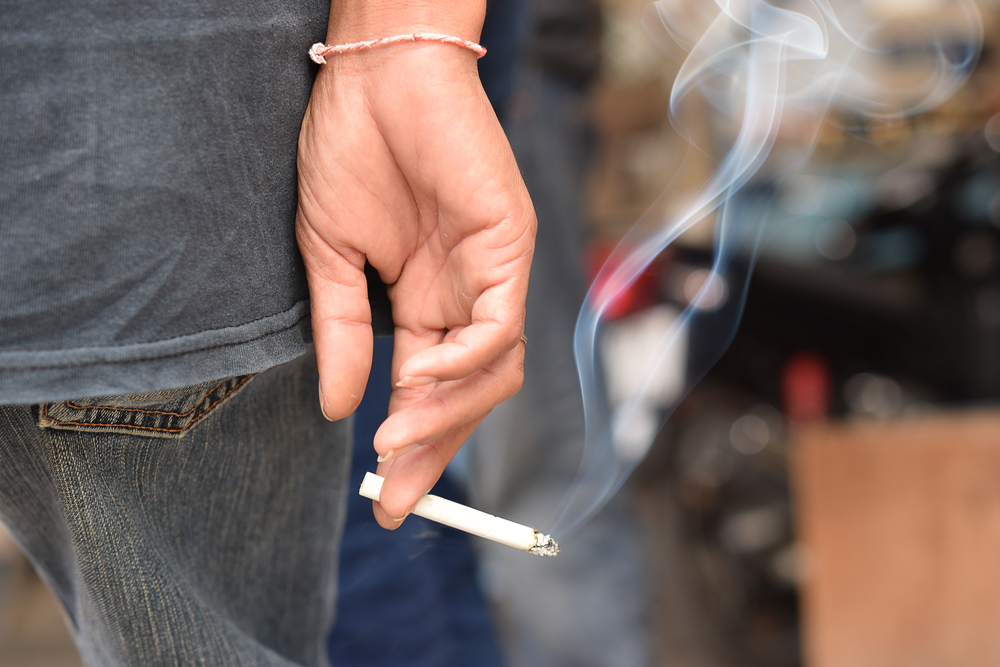What Owasso Dental Patients Should Know About the Periodontal Effects of Smoking
For residents of Owasso, Tulsa, Bixby, Claremore, and surrounding Oklahoma communities, understanding the effects of smoking on oral health is critical. While many associate smoking with stained teeth and bad breath, the real danger lies in the unseen damage to your gums. Smoking and your gums are closely linked, with tobacco use significantly increasing the risk of gum disease, tooth loss, and other oral health problems.
At Lexington Dental, Dr. Cary and our team are dedicated to helping patients combat the periodontal effects of smoking. This guide explores how smoking impacts your gums, why treatment is more challenging for smokers, and actionable steps to protect your oral health. Ready to take control of your gum health? Call our Owasso dental team at (918) 274-8500 to schedule a comprehensive gum health evaluation today.
How Does Smoking Affect Gum Health?
Smoking, including the use of cigarettes, cigars, and smokeless tobacco, wreaks havoc on your gums and overall oral health. Tobacco products introduce harmful chemicals like nicotine and tar into your mouth, creating an environment where dental plaque thrives. This sticky buildup along the gum line leads to gingivitis, the earliest stage of gum disease, characterized by red or swollen gums and occasional bleeding gums.
 The effects of smoking extend beyond surface-level issues:
The effects of smoking extend beyond surface-level issues:
- Restricted Blood Flow: Nicotine constricts blood vessels, reducing blood flow to the gums. This deprives them of oxygen and nutrients, making it harder for gums to heal from infection or injury.
- Masked Symptoms: Smokers may not notice symptoms of gum disease, such as bleeding gums, because reduced blood flow hides these warning signs. This allows gum disease to progress undetected.
- Increased Bacterial Growth: Tobacco creates a breeding ground for harmful bacteria, leading to gum infection and inflammation.
- Weakened Immune System: Smoking impairs your immune system, making it harder to fight off a gum infection naturally.
Studies from the Centers for Disease Control and Prevention show that people who smoke are twice as likely to develop periodontal disease compared to non-smokers. The risk of developing gum disease increases with the frequency and duration of tobacco use.
The Connection Between Smoking and Periodontal Disease
Periodontitis, or advanced gum disease, is a serious condition that affects the gums, bone, and tissues that support your teeth. Smoking gum disease is a well-documented issue, with tobacco use being one of the leading risk factors. Here’s how smoking contributes to periodontal disease:
- Progression from Gingivitis: Untreated gingivitis can escalate to periodontitis, where gums pull away from teeth, forming pockets that harbor bacteria. These pockets deepen over time, leading to bone and tissue destruction.
- Bone Loss and Tooth Loss: The bone that supports your teeth deteriorates, causing loose teeth and, eventually, tooth loss. Smokers face a higher risk of disease and tooth loss than non-smokers.
- Increased Risk of Oral Cancer: Tobacco use, including smokeless tobacco, significantly raises the risk of oral cancer and mouth cancer, which can further complicate gum health.
The Centers for Disease Control and Prevention note that smoking is responsible for a significant portion of periodontal disease cases, with smokers facing poorer outcomes than non-smokers.
Why Is Gum Disease Treatment Harder for Smokers?
 Treating gum disease in people who smoke is challenging due to the physiological effects of tobacco. Here’s why:
Treating gum disease in people who smoke is challenging due to the physiological effects of tobacco. Here’s why:
- Slow Healing: Reduced blood flow and a compromised immune system hinder the body’s ability to heal after treatments like scaling and root planing or gum grafts.
- Lower Success Rates: Periodontal treatments, such as deep cleanings or surgical interventions, are less effective in smokers due to persistent bacterial growth and slow healing.
- Frequent Maintenance: Smokers often require regular cleanings (three to four times per year) to remove plaque and tartar that exacerbate gum disease.
For these reasons, smokers need to visit the dentist regularly to manage gum disease and prevent dental problems from worsening.
Can Quitting Smoking Reverse Gum Disease?
Quitting smoking is the most effective step to improve your oral health and halt the progression of gum disease. While some damage, such as severe bone loss or advanced periodontitis, may be irreversible, quitting smoking can significantly enhance your gums’ ability to heal. Here’s what happens when you stop smoking:
- Improved Blood Flow: Within weeks of quitting, blood flow to the gums improves, allowing better delivery of oxygen and nutrients.
- Enhanced Healing: Your gums become more responsive to treatment, and procedures like professional cleanings become more effective.
- Reduced Risk: The risk of further gum disease, tooth loss, and oral cancer decreases over time.
While quitting smoking can reverse early-stage gum disease like gingivitis, advanced periodontitis may require ongoing treatment to manage. The sooner you stop smoking, the better your chances of preserving your natural teeth.
Steps to Protect Your Gums from Smoking Damage
 Even if you’re not ready to stop smoking, you can take steps to minimize gum damage:
Even if you’re not ready to stop smoking, you can take steps to minimize gum damage:
- Visit Your Dentist Regularly: Schedule dental cleanings and gum health assessments at least three to four times per year. Dr. Cary at Lexington Dental can detect early signs of gum disease and provide tailored treatment.
- Practice Excellent Oral Hygiene: Brush with an electric toothbrush, floss daily, and use interdental brushes to remove plaque. An antimicrobial mouthwash can reduce bacteria.
- Stay Hydrated: Drink water to combat dry mouth and rinse away debris. Chewing sugar-free gum stimulates saliva production, which helps protect tooth enamel.
- Monitor Symptoms: Watch for signs of gum disease, such as loose teeth, persistent bad breath, or gum recession, and seek treatment promptly.
Protect Your Oral Health with Lexington Dental
The invisible damage smoking causes to your gums doesn’t have to define your oral health. Early detection, professional treatment, and quitting smoking can save your teeth and restore your smile. At Lexington Dental, Dr. Cary and our team provide compassionate, judgment-free care to help patients overcome smoking-related gum disease.
Our conveniently located Owasso dental practice serves patients from Tulsa, Bixby, Claremore, and surrounding areas. Whether you’re ready to stop smoking or need help managing its effects, we’re here to support you with comprehensive periodontal care.
Take the first step toward healthier gums today. Call Lexington Dental at (918) 274-8500 to schedule your consultation. Don’t let smoking rob you of your smile – professional help is just a phone call away.





